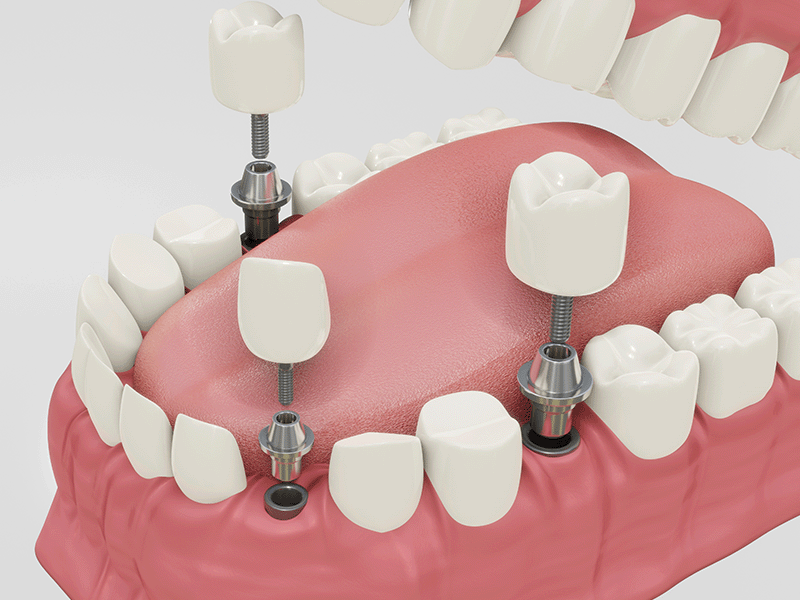What is a Dental Implant?
Dental Implant Surgery is the process of replacing damaged or missing teeth with artificial teeth acquired by using apparatus such as metal and screws. It can be considered as an alternative to some prostheses and bridge treatments.
Preparation and Procedure of Dental Implant Surgery
Depending on the patient's jaw structure and the type of implant, it varies that how the surgery is performed. It can be applied with several different methods. It is also counted mutual point of more than one specialization, so dentists with different specialties involve the process together.
Dental Implant Surgery can be performed both under general anesthesia or using local drugs. It's decided between the dentist and the patient how the surgery is performed. The patient needs to be more careful when general anesthesia is applied.
Firstly, a comprehensive dental examination is requested during the preparation period. 3D images and dental x-rays are taken. The patient's health status and the drugs (if exist) are checked then. Anti-infective medication is prescribed for patients with heart disease.
The number of teeth to be replaced is determined due to the patient's needs. It's made with the patient's mouth and jaw structure checked.

What are the risks of Dental Implant?
Since the risks and side effects of Dental Implant surgery are usually minor, they can be treated easily.
- Infection
- Damage to other teeth or gums
- Painful nerve injury in the teeth, gums, or jaw
- Sinus problems
After a Dental Implant Surgery and Things to Know
Dental Implant surgery can be performed both in one go or in a multi-stage process. These side effects may occur; Swelling of the patient's face and gums, pain in the implant area, bruising and bleeding. In these cases, pain relievers and antibiotics help to get rid of them.
Attention should be paid to the choice of food while healing. Soft foods should be preferred.
The doctor removes the sutures then if self-disappearing ones were not used.
Dental Implant surgeries are usually done with high success. Incompatibility between bone and implant may occur in some patients. It's known that smoking has an effect on this situation.
If the patient is careful about certain issues below, the results of the surgery may be longer:
It's very important to pay attention to oral hygiene. The patient should take the same care as the original teeth. Special toothbrushes can be used for this.
It is necessary not to delay the check-ups.
By avoiding hard foods, the structure of the implants is preserved. Substances such as caffeine cause stains on the teeth. It's necessary to be treated if teeth grinding exists.


